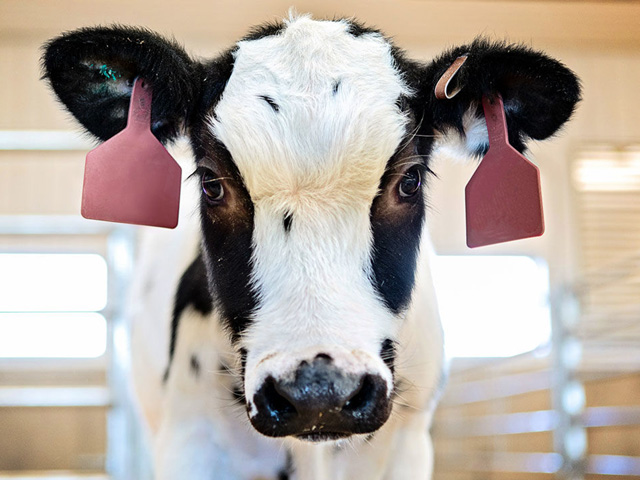Got Antibodies?
Cattle Antibodies Tested This Summer to Treat Covid-19
Cattle can do a lot of things, but few realize they can actually create something called a "polyclonal antibody" that can be used to treat serious illnesses in people.
SAB Biotherapeutics, a company based at Sioux Falls, South Dakota, is harnessing that potential to fight Covid-19. They've done similar work before, creating polyclonal antibodies to treat both influenza and MERS. Polyclonal antibodies are a collection of antibodies a body makes to ward off a specific invading organism. Today the focus is on treating, or even preventing, Covid-19.
The cows SAB uses to create these polyclonal antibodies aren't just any coww. They have been given genes from the human immune system that makes antibodies. They are injected with what essentially amounts to a coronavirus vaccine, causing them to try to fight off what the body sees as an infection. As that happens, SAB CEO Eddie Sullivan, explained, they "produce a specifically targeted high-neutralizing antibody that can be used in patients."
These targeted neutralizing antibodies can, in theory, help slow an infection in someone who is sick or prevent an infection in someone who is exposed to the virus.
P[L1] D[0x0] M[300x250] OOP[F] ADUNIT[] T[]
Why a cow? The antibodies circulate in the animals' plasma, and each cow can generate a lot of plasma. "Between 30 and 45 liters of plasma every month from each animal," said Sullivan.
He added they've already shown the concept can work for Middle East Respiratory Syndrome (MERS), an illness caused by a virus similar to the one that causes COVID-19. That means SAB has considerable background in producing antibodies to a type of coronavirus.
Whether the antibodies will work against the coronavirus that causes COVID-19 still has to be shown. To do that, SAB partnered with William Klimstra, of the University of Pittsburgh. Klimstra, a globally recognized viral immunologist, said the first step is to show COVID-19 antibodies being created in SAB's system are not causing more health problems than they solve.
"We're doing initial antibody tests for that, and then subsequently we'll be doing efficacy tests," Klimstra explained. Efficacy tests will show whether the antibodies actually prevent disease in animals exposed to the coronavirus.
In addition, he said: "We will look at virus production, weight loss, signs of infection to evaluate how sick they get."
Assuming Klimstra's tests show the antibodies can prevent disease, SAB hopes to start testing them in humans. Both the U.S. Department of Health and Human Services and the U.S. Department of Defense have supported SAB's polyclonal antibody production plans.
Using cows to manufacture antibodies is a process that goes back almost 20 years. In SAB's case the company uses dairy cows. They are able to create large quantities of human antibodies this way. SAB's Sullivan said cows are good antibody factors, not just because that have more blood than smaller animals, but their blood can contain twice as many antibodies per milliliter as human blood.
This week SAB announced it expects to start human trials next month for its Covid-19 antibody treatment. It is unknown how many people will be in the trial.
(c) Copyright 2020 DTN, LLC. All rights reserved.






